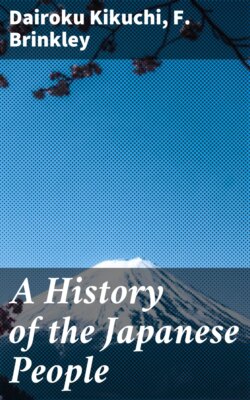Читать книгу A History of the Japanese People - Kikuchi Dairoku - Страница 167
На сайте Литреса книга снята с продажи.
POETRY
ОглавлениеIf we credit the annals, the composition of poetry commenced in the earliest ages and was developed independently of foreign influences. From the sovereign down to the lowest subject, everyone composed verses. These were not rhymed; the structure of the Japanese language does not lend itself to rhyme. Their differentiation from prose consisted solely in the numerical regularity of the syllables in consecutive lines; the alternation of phrases of five and seven syllables each. A tanka (short song) consisted of thirty-one syllables arranged thus, 5, 7, 5, 7, and 7; and a naga-uta (long song) consisted of an unlimited number of lines, all fulfilling the same conditions as to number of syllables and alternation of phrases. No parallel to this kind of versification has been found yet in the literature of any other nation. The Chronicles and the Records abound with tanka and naga-uta, many of which have been ascribed by skeptics to an age not very remote from the time when those books were compiled. But the Japanese themselves think differently. They connect the poems directly with the events that inspired them. Further reference to the subject will be made hereafter. Here it will suffice to note that the composing of such verselets was a feature of every age in Japan.
